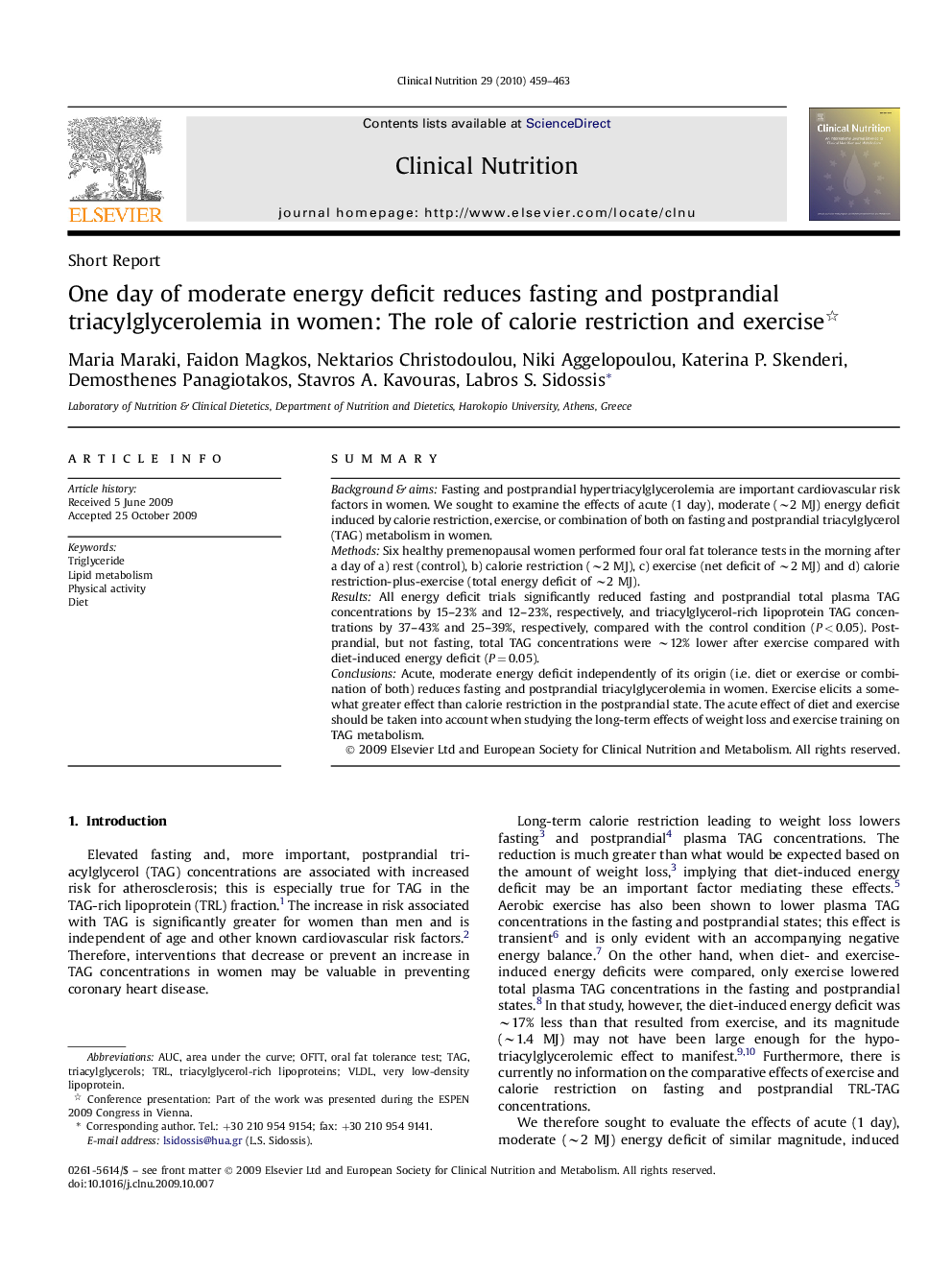| Article ID | Journal | Published Year | Pages | File Type |
|---|---|---|---|---|
| 2683204 | Clinical Nutrition | 2010 | 5 Pages |
SummaryBackground & aimsFasting and postprandial hypertriacylglycerolemia are important cardiovascular risk factors in women. We sought to examine the effects of acute (1 day), moderate (∼2 MJ) energy deficit induced by calorie restriction, exercise, or combination of both on fasting and postprandial triacylglycerol (TAG) metabolism in women.MethodsSix healthy premenopausal women performed four oral fat tolerance tests in the morning after a day of a) rest (control), b) calorie restriction (∼2 MJ), c) exercise (net deficit of ∼2 MJ) and d) calorie restriction-plus-exercise (total energy deficit of ∼2 MJ).ResultsAll energy deficit trials significantly reduced fasting and postprandial total plasma TAG concentrations by 15–23% and 12–23%, respectively, and triacylglycerol-rich lipoprotein TAG concentrations by 37–43% and 25–39%, respectively, compared with the control condition (P < 0.05). Postprandial, but not fasting, total TAG concentrations were ∼12% lower after exercise compared with diet-induced energy deficit (P = 0.05).ConclusionsAcute, moderate energy deficit independently of its origin (i.e. diet or exercise or combination of both) reduces fasting and postprandial triacylglycerolemia in women. Exercise elicits a somewhat greater effect than calorie restriction in the postprandial state. The acute effect of diet and exercise should be taken into account when studying the long-term effects of weight loss and exercise training on TAG metabolism.
